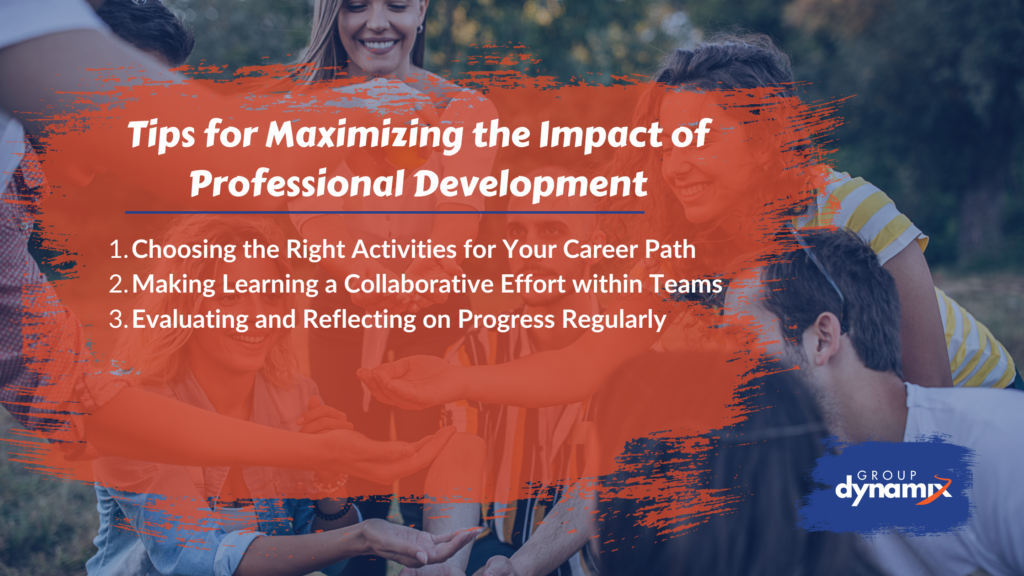Did you know that 94% of employees would stay at a company longer if it invested in their career development? In today’s competitive job market, especially in a thriving metropolis like Dallas, professional growth is essential for career advancement. Whether you’re just starting out, mid-career, or a seasoned executive, investing in your professional development can be the difference between staying stuck and soaring ahead.
At Group Dynamix, we’re committed to helping you unlock your potential and achieve your career goals. Discover our tailored programs designed to enhance your skills and foster your growth.
Active Corporate Events & Team Building in Dallas, Texas
Active Corporate Events & Team Building in Dallas, Texas
Table of Contents

Overview of Professional Development Activities
Professional development activities are structured opportunities designed to enhance your skills, knowledge, and capabilities within your field or beyond it. But what is a professional development activity exactly? It’s any learning experience that helps you grow professionally—from formal education and training to networking events and mentorship programs.
What are professional development activities that truly make a difference? They range from industry conferences and workshops to online courses, leadership training, or even volunteering for projects outside your comfort zone. The best ones align with your career goals while addressing your specific skill gaps.
In Dallas’s dynamic business scene, these activities take on special significance. With the city’s diverse economy spanning tech, healthcare, finance, and more, professionals here have unique opportunities to cross-pollinate ideas and build versatile skill sets that make them invaluable to their organizations.
Professional development isn’t just about technical skills, though. It also covers soft skills like communication, leadership, emotional intelligence, and adaptability—qualities increasingly valued in today’s collaborative workplaces. By intentionally seeking out growth opportunities, you set yourself up for greater success and satisfaction throughout your career journey.

Benefits of Engaging in Professional Development Activities
Professional development and growth go hand in hand, creating a powerful catalyst for career advancement. When you actively participate in development activities, you’re investing in yourself and your future. Organizations with strong learning cultures are 92% more productive and 17% more profitable than their peers, showing just how valuable these efforts can be for both individuals and companies.
Increased Skill Set and Knowledge Base
Examples of professional development that expand your skills are numerous and varied. Technical workshops, certification programs, and specialized training courses directly enhance your capabilities in specific areas. When you continuously update your knowledge base, you become more valuable to your organization and more marketable in your industry.
In today’s rapidly changing workplace, staying current isn’t optional—it’s essential. By regularly participating in webinars, industry conferences, or specialized training, you ensure your skills remain relevant. This ongoing education helps you navigate technological changes and industry shifts with confidence.
The knowledge gained through professional development activities also transfers to improved performance. When you learn new methods or best practices, you bring these innovations back to your team, creating a ripple effect of improvement throughout your organization.
Enhanced Networking Opportunities
One of the most powerful benefits of professional development activities is the connections you make. Industry events, workshops, and seminars bring together like-minded professionals, creating natural networking opportunities that can lead to mentorships, collaborations, and even job offers.
These connections often prove more valuable than the content itself. A conversation during a coffee break at a conference might lead to your next big career opportunity. Professional associations and industry groups in Dallas offer regular events where you can build relationships with peers and leaders in your field.
Networking also provides access to different perspectives and approaches. By discussing challenges with professionals from various backgrounds, you gain insights that might not be available within your immediate work circle, broadening your understanding and approach to problems.
Personal Growth and Better Job Satisfaction
Ideas for growth and development at work extend beyond technical skills to include personal development. Activities focused on leadership, communication, emotional intelligence, and work-life balance contribute significantly to your overall satisfaction and effectiveness.
Personal growth ideas for work might include mindfulness training, conflict resolution workshops, or coaching sessions. These experiences help you develop self-awareness and interpersonal skills that enhance your daily interactions and long-term career trajectory.
The connection between professional development and job satisfaction is clear—80% of employees say learning opportunities add purpose to their work. When you feel you’re growing and developing, you’re more likely to find meaning in your role and stay engaged with your organization.
This increased satisfaction translates to better retention rates for companies, with studies showing employees who receive development opportunities have 34% higher retention rates than those who don’t. The personal fulfillment that comes from continuous learning creates a positive cycle of growth, engagement, and success.

Top Professional Development Activities to Consider
When exploring professional development activities examples, it’s essential to identify opportunities that align with your career goals and learning style. The right combination of activities can significantly accelerate your professional growth and open doors to new opportunities. Here’s a comprehensive look at some of the most effective development activities examples to consider.
Networking and Mentoring Programs
Networking remains one of the most powerful examples of professional activities for career advancement. In Dallas, organizations like the Dallas Regional Chamber and industry-specific groups host regular networking events that connect professionals across various sectors. These connections often lead to collaborations, job opportunities, and valuable industry insights.
Mentoring programs provide structured guidance from experienced professionals who’ve navigated similar career paths. Finding a mentor who can offer perspective on your professional journey is invaluable. Many Dallas-based companies have formal mentoring programs, but don’t be afraid to reach out directly to someone whose career you admire.
Creating a “personal board of directors”—a small group of trusted advisors from different backgrounds—represents one of the most strategic examples of growing professionally. This diverse group can provide balanced feedback and help you navigate complex career decisions with broader perspective than a single mentor might offer.
Workshops and Seminars for Targeted Skill Boosts
Targeted workshops and seminars offer intensive learning experiences focused on specific skills. Whether you need to enhance your project management capabilities, develop leadership skills, or master a new software platform, these structured learning environments provide concentrated knowledge transfer.
Industry conferences like the annual Dallas Digital Summit or specialized training sessions offered by local universities represent excellent examples of professional development opportunities. These events not only build skills but also keep you informed about industry trends and innovations.
Look for workshops that include practical application components, not just theory. The most effective skill-building experiences include opportunities to practice what you’ve learned through role-playing, case studies, or hands-on projects that cement your new knowledge.
Online Courses and On-Demand Learning Platforms
The explosion of online learning platforms has democratized access to education. Sites like Coursera, LinkedIn Learning, and edX offer courses on virtually any topic, often taught by instructors from prestigious institutions. These platforms allow you to learn at your own pace while balancing work responsibilities.
Creating a personal learning curriculum is one of the most flexible examples of growing professionally. You might combine a formal online certification course with relevant podcasts, virtual conferences, and targeted reading to build expertise in your area of interest.
Many companies offer subscriptions to learning platforms as part of their benefits package. Take advantage of these resources—statistics show that 76% of employees are actively looking for opportunities to expand their careers, making self-directed learning a competitive necessity.
Job Shadowing and Rotation for Broader Experience
Job shadowing and rotation programs provide immersive learning experiences that textbooks can’t replicate. By observing colleagues in different roles or departments, you gain practical insights into various aspects of your organization and industry.
These programs represent some of the most hands-on professional development activities examples. They allow you to test-drive different roles, discover new interests, and identify skills gaps that might otherwise remain hidden. This experiential learning often leads to more informed career decisions.
If your organization doesn’t offer formal rotation programs, propose creating one. Present it as a win-win that builds institutional knowledge while developing versatile employees who understand multiple facets of the business—making it one of the most valuable examples of professional development opportunities.
Feedback Workshops and Conflict Resolution Training
Developing emotional intelligence and communication skills through feedback workshops and conflict resolution training yields benefits that extend beyond your professional life. These soft skills are increasingly valued in collaborative work environments and leadership positions.
Group Dynamix in Dallas specializes in these interpersonal skill-building activities. Their team-building programs are designed to enhance problem-solving skills and challenge participants to think creatively, improving their ability to tackle workplace issues effectively.
Their activities also focus on conflict resolution skills, helping participants learn to address differences constructively in a safe environment. This training is particularly valuable as teams become more diverse and collaborative work increases across departments and disciplines.

Integrating Professional Development into Your Routine
Consistently investing in your professional growth requires intentionality and planning. Learning how to improve professional development doesn’t happen by accident—it requires strategic integration into your daily and weekly routines. The good news is that with some thoughtful planning, you can create sustainable habits that advance your career without overwhelming your schedule.
Setting SMART Goals for Career Advancement
To make meaningful progress, start by setting SMART goals—Specific, Measurable, Achievable, Relevant, and Time-bound objectives that clarify exactly what you’re working toward. Rather than a vague goal like “improve leadership skills,” create a specific target such as “complete a leadership certification program and lead two cross-departmental projects by December.”
Writing down your goals dramatically increases your likelihood of achieving them. Take time to document what you want to accomplish and why it matters to your career trajectory. This written record serves as a roadmap and helps you identify opportunities for continuing professional development that align with your ambitions.
Review and revise these goals quarterly to ensure they remain relevant as your career evolves. This regular check-in process helps you stay adaptable while maintaining forward momentum. Remember that the most effective goals connect directly to your organization’s needs as well as your personal aspirations, creating a win-win scenario that makes your development valuable to both you and your employer.
Balancing Work Responsibilities with Development Activities
One of the biggest challenges professionals face is finding time for development amidst busy work schedules. The solution lies in integration rather than separation—look for development opportunities at work examples that align with your current responsibilities. For instance, volunteering to lead a project that requires a skill you want to develop serves both your job duties and growth objectives.
Time-blocking can be extremely effective for ensuring development doesn’t get pushed aside. Schedule dedicated learning time on your calendar—whether it’s 30 minutes each morning for an online course or two hours every Friday afternoon for skill practice. Treat these appointments with the same commitment you would give to a meeting with an important client.
Microlearning is another powerful approach for busy professionals. Break learning into small, digestible chunks that can fit into short periods throughout your day. Listen to industry podcasts during your commute, read relevant articles during lunch, or practice a new skill for 15 minutes before starting your workday. These small investments compound significantly over time.
Utilizing Employer-Sponsored Opportunities Effectively
Many professionals overlook development opportunities at work examples that are already available within their organizations. Most mid-to-large sized companies in Dallas offer some form of professional development benefit—whether it’s tuition reimbursement, conference attendance, or internal training programs. These resources represent “free” opportunities for growth that many employees never fully utilize.
When seeking to identify opportunities for continuing professional development, start by meeting with your HR department or manager to understand all available resources. Many organizations have educational stipends, mentoring programs, or subscriptions to learning platforms that go unused simply because employees aren’t aware of them.
Make professional development a central topic in your performance reviews and one-on-one meetings with supervisors. Research shows that 70% of workers say learning improves their connection to their workplace, so most managers are receptive to supporting growth initiatives that align with business needs. Come prepared with specific requests and demonstrate how your development will benefit the organization.
Group Dynamix offers specialized team-based development programs that many Dallas employers sponsor. Their activities are designed to improve communication and break down barriers, making them particularly valuable for professionals looking to enhance their collaborative skills while building meaningful connections with colleagues. These facilitated experiences offer the dual benefit of skill development and team building, making them especially valuable investments.

Tips for Maximizing the Impact of Professional Development
To truly benefit from professional development, it’s not enough to simply participate in activities—you need a strategic approach that maximizes your return on investment. Applying professional development ideas effectively requires thoughtful selection, implementation, and evaluation to ensure they translate into tangible career growth.
1. Choosing the Right Activities for Your Career Path
The most effective professional development aligns directly with your career objectives and learning style. Before investing time and resources, conduct a skills gap analysis by comparing your current capabilities against those needed for your desired role. This assessment helps identify specific areas where focused development will yield the greatest returns.
When considering how to improve professional development choices, look beyond industry trends to your unique career aspirations. While data science might be a hot field, if your passion lies in creative direction, pursuing technical skills may not serve your long-term goals. Instead, select opportunities that genuinely excite you while moving you toward your target position.
Professional development ideas should also reflect your learning preferences. Some individuals absorb information best through hands-on workshops, while others thrive in self-directed online environments. Understanding your learning style ensures you select formats that will maximize knowledge retention and application. As research shows, learning becomes significantly more impactful when it incorporates active engagement and practical application rather than passive consumption of information.
2. Making Learning a Collaborative Effort within Teams
Learning shouldn’t happen in isolation. Creating a culture of shared growth within your team or department multiplies the impact of individual development efforts. Consider establishing a knowledge-sharing system where team members who attend conferences or complete courses present key takeaways to colleagues.
Professional development ideas that involve multiple team members often generate unexpected benefits. Group Dynamix facilitates team-based learning experiences that simultaneously build skills and strengthen relationships. Their activities enhance problem-solving abilities while challenging participants to adapt to unexpected situations, creating a shared vocabulary and approach to workplace challenges.
Collaborative learning also helps address knowledge silos that naturally form in organizations. When individuals with different specialties learn together, they develop appreciation for diverse perspectives and identify connection points between their areas. This cross-pollination of ideas frequently leads to innovation and improved problem-solving capacity across the organization.
3. Evaluating and Reflecting on Progress Regularly
For professional development to truly stick, regular reflection and evaluation are essential. Create a system to track your growth—whether through a digital portfolio, learning journal, or regular check-ins with a mentor. Document not just what you’ve learned but how you’ve applied new knowledge in your role and the results you’ve achieved.
Set aside time quarterly to review your professional development plan against your career goals. Ask yourself: Are the activities moving me closer to my objectives? What evidence do I have of growth? What adjustments should I make to my development strategy? This systematic reflection helps ensure your efforts remain focused and effective.
Seeking feedback from managers, mentors, and colleagues provides valuable external perspective on your progress. Group Dynamix recommends feedback workshops that teach effective communication techniques for both giving and receiving constructive criticism—skills that enhance your ability to leverage feedback for continued growth.
Statistics show that employees who receive regular feedback on their development are 15% more engaged than those who don’t. This increased engagement translates to greater job satisfaction and career advancement. By creating structured opportunities for evaluation, you transform professional development from a sporadic activity into a continuous improvement cycle.
Improve Your Company Culture
Corporate Events, Group Outings, Private Events, Charities, Meetings, and More...
Improve Your Company Culture
Corporate Events, Group Outings, Private Events, Charities, Meetings, and More...
Group Dynamix: Team Building for Professional Development
Group Dynamix is a leading provider of experiential learning and team-based skill development in Dallas. They offer custom-designed team building programs that go beyond traditional games to enhance critical workplace skills such as communication, leadership, problem-solving, and collaboration.
One standout offering is their problem-solving challenges, which simulate real-world scenarios that require creative thinking and adaptability, accompanied by debrief sessions that link learnings to workplace challenges. Their focus on communication skills involves activities that help participants recognize and overcome limitations, providing safe spaces for practice and immediate feedback.
Emerging leaders benefit from programs that foster leadership skills, encouraging mentorship and knowledge transfer within organizations. Group Dynamix emphasizes sustained impact through progressive learning journeys, with trained facilitators helping connect activities to workplace applications.
Organizations that utilize Group Dynamix report significant improvements in team dynamics and individual performance, with participants experiencing deeper engagement and higher retention of concepts. For professionals in Dallas seeking to enhance their skills and build relationships, Group Dynamix offers effective and relevant professional development activities.

